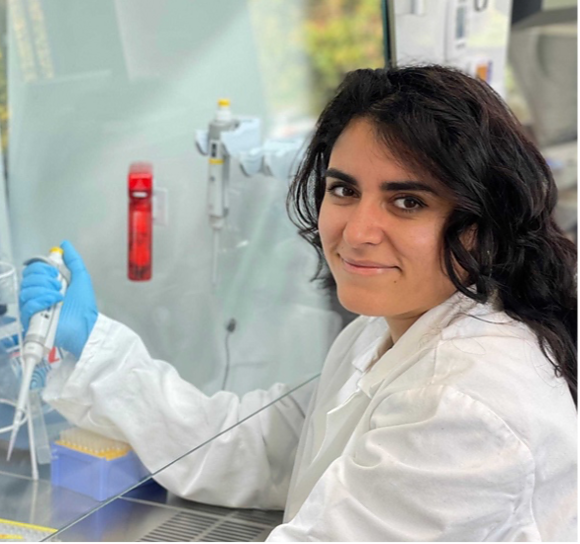
Eya Ben Salah
Eya studied in the University of Monastir, Tunisia where she received her master’s degree in Immunology and Immunotherapy in 2016. Then she carried out her PhD project jointly in University of Monastir, Tunisia, Université de Franche-comté, as well as the Centre National de Recherche Echinococcoses in Besançon, France. She mainly focused on identifying novel immunological biomarkers for the early prediction of surgical treatment outcomes in children affected by cystic echinococcosis. She also contributed to research work related to other neglected tropical diseases such as Leishmaniasis. In early 2022, she joined Prof Julia Esser-von-Bieren group in Zentrum für Allergie und Umwelt and Helmholtz Zentrum Munich where she started her post-doctoral research on type 2 immune responses during allergy and helminth diseases. Eya is studying the roles of transglutaminase-2 and type 1 interferons in type 2 immune responses with a focus on macrophage reprogramming.
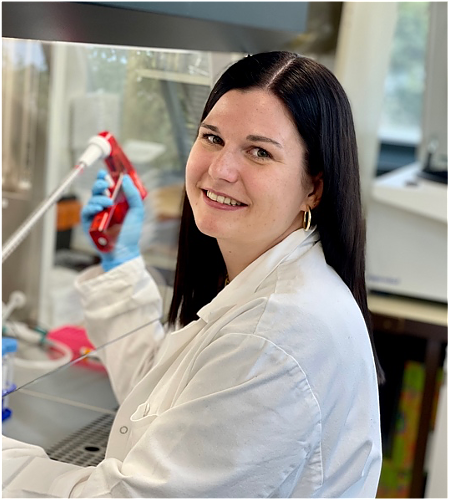
Sina Bohnacker
Sina Bohnacker received her master’s degree in Biochemistry from the Technical University of Munich, where she studied the interleukin 23 chaperone binding and biogenesis. During her PhD at the Helmholtz Center Munich, she continued the work of interleukin 12 family biogenesis and their role in type 2 immunity. In addition, a large part of her PhD consisted of investigating the regulation of macrophage activation in infectious diseases (SARS-CoV-2 and helminth infections), focusing on the modulation of eicosanoid metabolism. Sina is studying mechanisms underlying helminth-driven immune regulation in infection and inflammation.
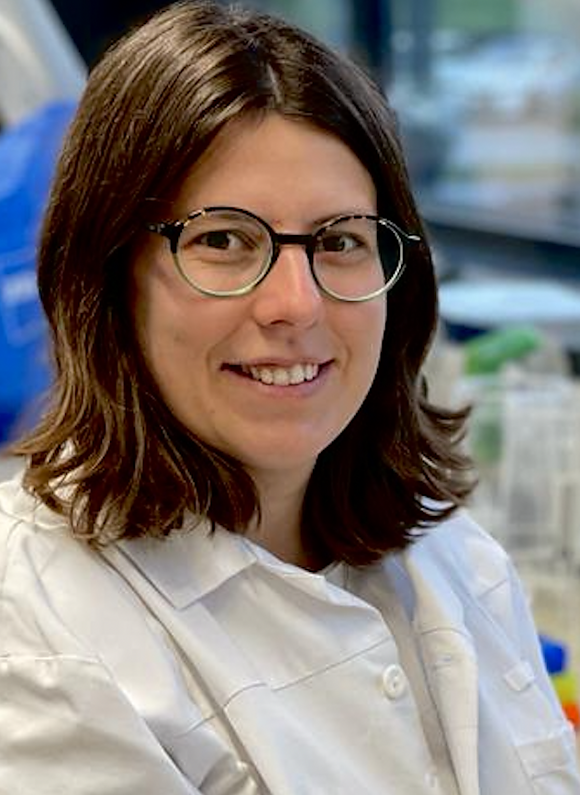
Nuri Crua Asencio
Nuria Crua received her master’s degree in Biochemistry, Molecular Biology, and Biomedicine from the University Autonomous Barcelona (UAB), where she investigated the role of tRNA synthetases in host-pathogen interactomes together with the Vall Hebron Hospital. Subsequently, her Ph.D. at the University Autonomous Barcelona (UAB) extended this exploration to unraveling host-pathogen interactomes, including Pseudomonas aeruginosa infections in cell models of Cystic Fibrosis. During her first postdoctoral research at the Instituto Italiano di Tecnologia (IIT) in Genova (Italy), she conducted research involving the testing of RNA aptamers. Finally, as a Marie Skłodowska-Curie Postdoctoral Fellow in University College of Dublin (UCD), she proposed innovative circRNA therapeutics using recombinant bacteria. Nuria’s current work is focused on the regulatory roles of prostanoids in type 2 immunity.
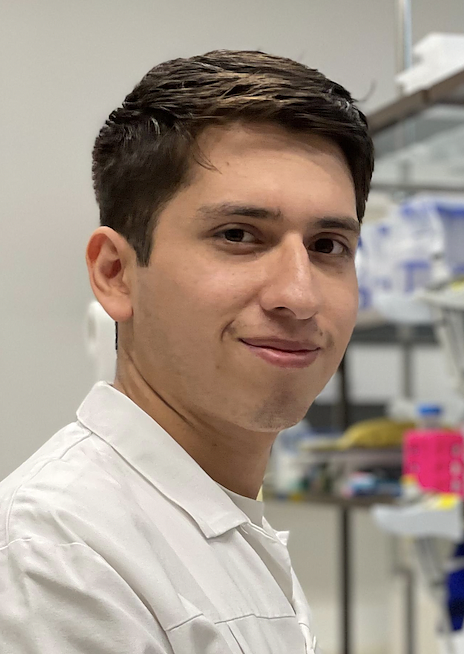
Andreas Hurtado Igleasias
Andreas obtained his MSc degree in Life Sciences Engineering at EPFL in 2022. For his MSc thesis, he joined the lab of Prof. Michele De Palma from EPFL to develop cancer vaccines with engineered dendritic cells and study their role in solid-tumor microenvironment. He then joined our lab as PhD student to investigate the role of leukotrienes and trained type 2 immunity in chronic airway inflammation. Andreas is studying mechanisms of central trained immunity in asthma.
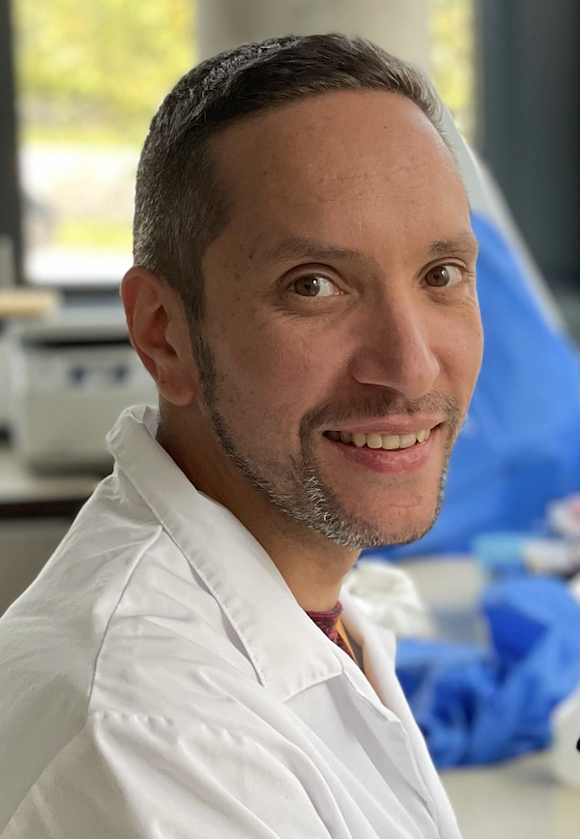
Manuel Kulagin
After highschool, Manu obtained his CFC diploma from the “Ecole Superieure de la Santé” in 2009. He then immediately joined Nicola Harris’ Lab at the EPFL as a Lab-technician, working in the field of intestinal immunology. After the closure of his former Lab in 2017, Manu joined the “Centre de PhenoGenomique” at EPFL where he was responsible for conducting a variety of animal experiments in the metabolic field. In 2022, he decided to join Prof. Esser-von Bieren’s Lab and thus return to Immunology again. Over the years Manu gained proficiency in the work with laboratory animals, acquiring different techniques and skills which he is always eager to share with colleagues and future scientists.
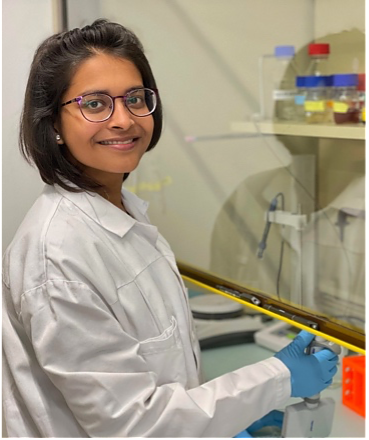
Isika Ram
Isika received her master’s degree in Life Sciences from the Indian Institute of Science Education and Research Bhopal, India. For her master’s thesis she worked on developing protein biomarkers for allergen specific immunotherapy at the Swiss Institute of Allergy and Asthma Research, University of Zurich, Switzerland. Isika’s current work is focused on understanding the role of type 2 cytokines in myeloid cell reprogramming.
